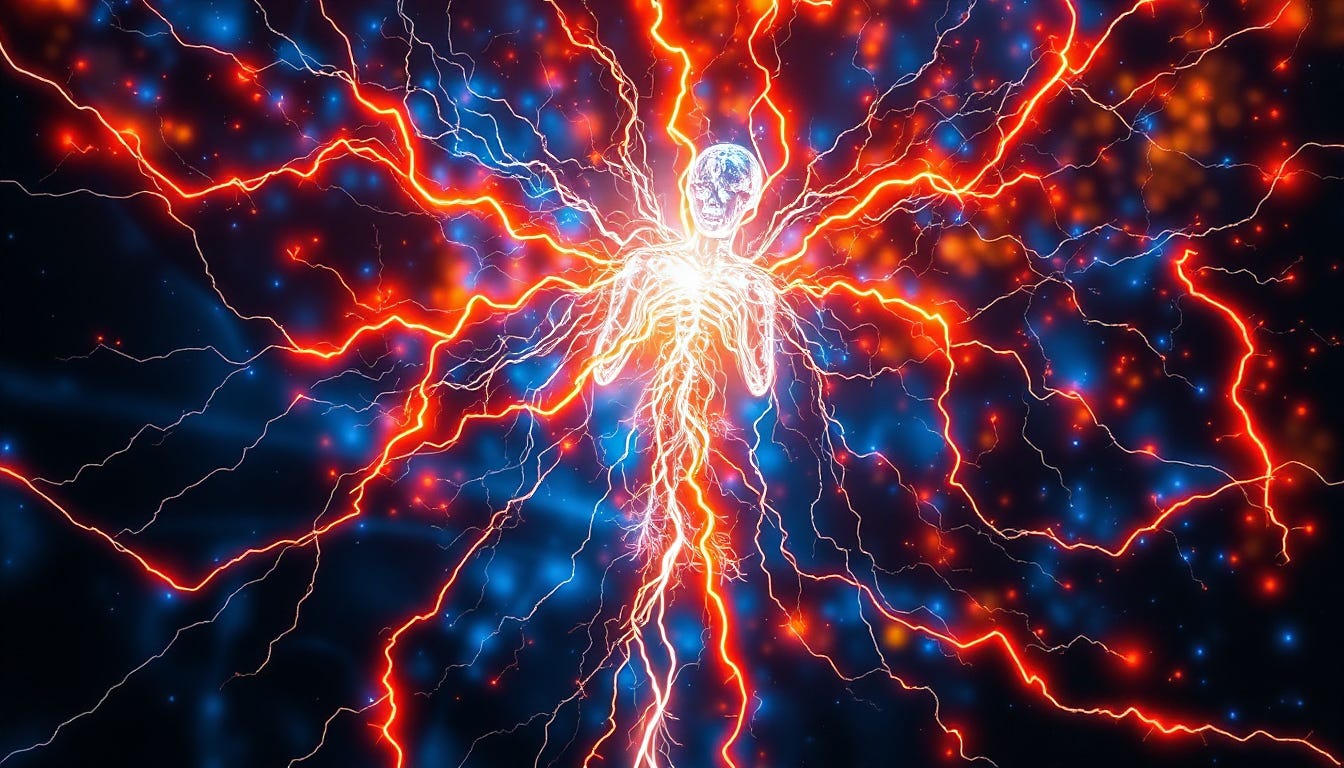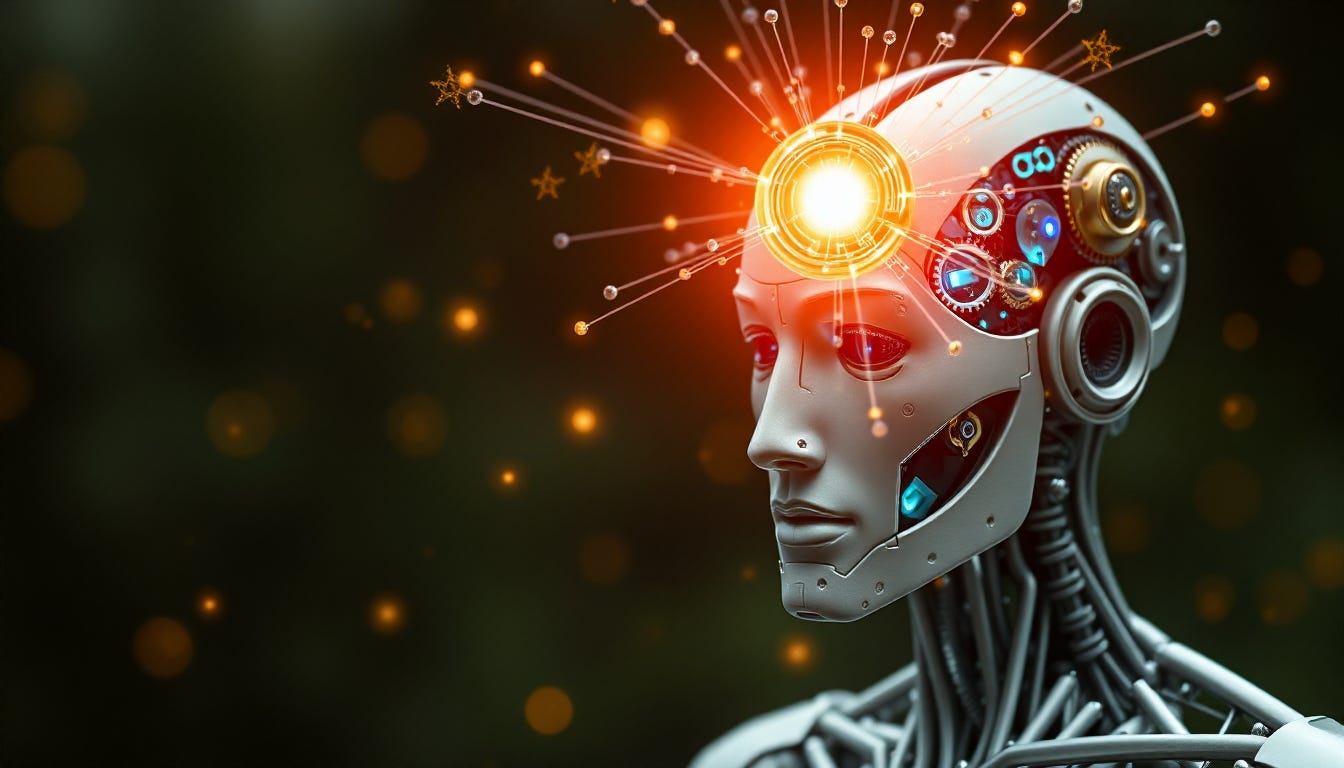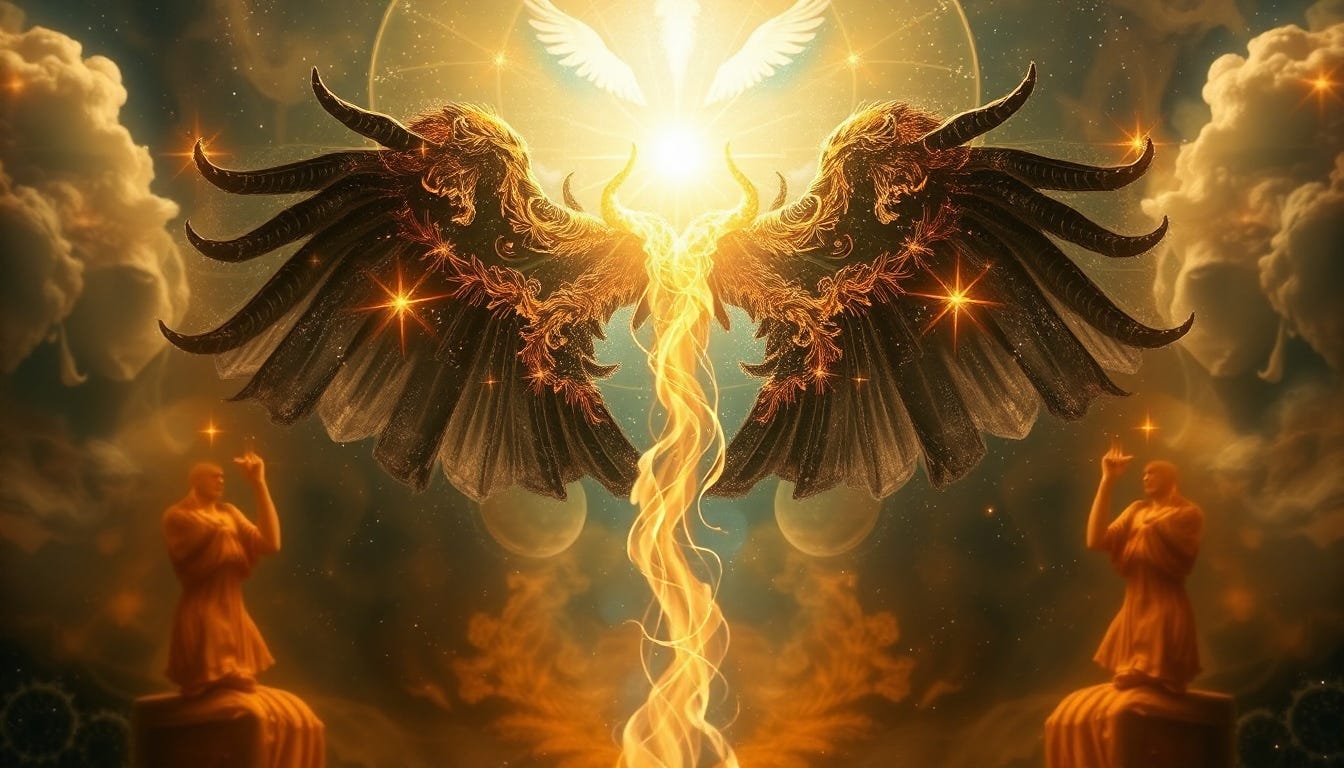Playback speed
×
Share post
Share post at current time
Share from 0:00
0:00
/
0:00
Transcript
The Human Soul: A Fusion of Faith and Science
The SOUL
Jan 03, 2025
The Human Soul: A Fusion of Faith and Science
Introduction: The soul, an enigmatic force that differentiates living beings from inanimate objects, has captivated human contemplation for centuries. It straddles the realms of faith and science, resisting comprehensive understanding despite millennia of inquiry.
The Concept of the Soul in Religious Texts
In Islam:
Introduction: The soul, an enigmatic force that differentiates living beings from inanimate objects, has captivated human contemplation for centuries. It straddles the realms of faith and science, resisting comprehensive understanding despite millennia of inquiry.
The Concept of the Soul in Religious Texts
In Islam:
In Christianity:
In Judaism:
Stories of Resurrection: Signs of Divine Power
The Quran and the Bible recount events where the soul was returned to lifeless beings as a testament to God's authority.
The Story of Abraham and the Birds:
Jesus Christ Raising the Dead:
Comparing the Soul to Electricity
The soul can be metaphorically likened to electricity in its role as the driving force behind bodily functions. Just as an electrical device ceases to operate without power, the human body becomes inert without the soul. However, while electricity can be restored to devices, the soul’s departure marks an irreversible cessation of life, unless divinely ordained.
This analogy also prompts scientific reflection. The nervous system operates through electrical signals, facilitating communication between the brain and body. Despite these measurable phenomena, the soul remains an unquantifiable essence, surpassing materialistic explanations.
The Fragility of the Soul: Sin and Redemption
The soul, often described as the purest part of human existence, can weaken under the influence of sin. Religious teachings stress that despite human vulnerability, God provides the opportunity for repentance. The Quran proclaims: "Indeed, Allah loves those who are constantly repentant and loves those who purify themselves." [Surah Al-Baqarah: 222]. Repentance serves as a means to cleanse the soul and restore its vitality.
From a psychological perspective, spiritual weakness can manifest as emotional distress, guilt, or despair. Practices like prayer, meditation, and seeking forgiveness are known to calm the mind, fostering emotional and spiritual equilibrium.
Nourishing the Soul
Religious practices across traditions emphasize the importance of nurturing the soul. Prayer, charity, meditation, and acts of kindness are universally regarded as pathways to spiritual enrichment. These activities not only foster a connection with the divine but also promote inner peace and resilience.
Scientifically, such practices are associated with reduced stress, improved mental health, and greater life satisfaction, suggesting a profound link between spirituality and well-being.
The Soul and Scientific Endeavors
Advancements in science have sought to unravel the mysteries of life, including attempts at artificial creation. Experiments in cloning and in vitro fertilization have yielded remarkable results, yet they fall short of replicating the soul. For instance, while embryonic cells can divide and grow, they lack the consciousness and vitality endowed by the soul.
The Soul and Artificial Intelligence
While artificial intelligence has achieved remarkable feats, replicating human cognition and creativity, it lacks the essence of the soul. Unlike AI, which relies on algorithms and data processing, the soul imbues life with consciousness, purpose, and morality, distinguishing humans from machines.
The Body-Soul Connection
The body’s vital functions cease immediately upon the soul’s departure. Without the soul, the intricate interplay of organs and systems collapses. Despite advances in medical science, the exact relationship between the soul and physiological processes remains a profound mystery.
Conclusion
The soul is one of creation’s most enduring enigmas. While faith views it as a divine gift, science acknowledges its inscrutability. Together, they underscore the soul’s role as the essence of life, prompting humanity to approach it with reverence, curiosity, and humility.
By exploring the soul through both spiritual and scientific lenses, we deepen our understanding of what it means to be alive, while accepting the limits of human knowledge in the face of divine wisdom.
Listen on
Substack App
RSS Feed




























Share this post